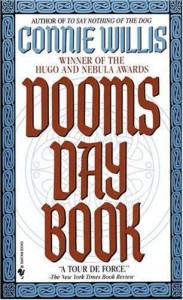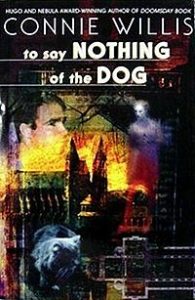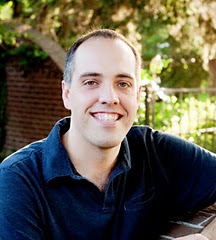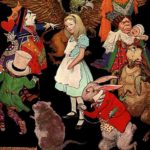Science Fiction Author Connie Willis
 I sometimes get the feeling that the science fiction community can be hostile toward spiritual things or even anti-Christian. Certainly, there are books (even award-nominated works) that are firmly atheist or anti-theist.
I sometimes get the feeling that the science fiction community can be hostile toward spiritual things or even anti-Christian. Certainly, there are books (even award-nominated works) that are firmly atheist or anti-theist.
On the other hand, there are some spectacular Christians at work in the genre, both in the traditional science fiction industry and in the Christian book genre. The author who has received the most lifetime Nebula and Hugo awards is a devout Christian named Connie Willis. She attends the United Church of Christ (Congregationalist). And her most popular work, the so-called “time travel series” is a scarcely disguised series of stories and novels about God’s interaction with human beings.
I’m sure many of the readers here at Speculative Faith are familiar with Willis’s work, but a brief introduction for those unfamiliar might bring some interesting conversation for all.
Connie Willis is the most-awarded writer of science fiction ever, with seven Nebula wins and eleven Hugos. Crazy, right? Three of those Hugo wins are for her novels in the time travel series. What you need to know about the story, basically, is this: Time travel is useless for commercial endeavors and has become the realm of scholars who travel back as historians. The prevailing theories say that time travelers can’t change any significant event in the past because “the time stream prevents it.” Try to go to the Battle of the Bulge, and you’ll end up a hundred years too early or two hundred miles away.
 The first full-length book of Willis’s that I read (and, as it turns out, my favorite) is the Hugo and Nebula award-winning The Doomsday Book. On the theology side, it’s a meditation on the question, “Why does God allow suffering and injustice?” A young historian travels back in time and accidentally lands in the center of the Black Plague. Our protagonist tries desperately to change things, knowing that she can’t, and watching as the plague ravages the town she is in. It’s about history, fate, God, suffering and beautiful acts of selflessness. A key character is a priest who labors on in the face of hopelessness, bringing beauty and comfort to the sick, and radically impacting our time traveler.
The first full-length book of Willis’s that I read (and, as it turns out, my favorite) is the Hugo and Nebula award-winning The Doomsday Book. On the theology side, it’s a meditation on the question, “Why does God allow suffering and injustice?” A young historian travels back in time and accidentally lands in the center of the Black Plague. Our protagonist tries desperately to change things, knowing that she can’t, and watching as the plague ravages the town she is in. It’s about history, fate, God, suffering and beautiful acts of selflessness. A key character is a priest who labors on in the face of hopelessness, bringing beauty and comfort to the sick, and radically impacting our time traveler.
 To Say Nothing of the Dog also won the Hugo. This is an odd book, more comedy of manners than time travel book, and it veers suddenly into cozy mystery (or satire of cozy mystery?) part way through the book. Basically, a time traveler accidentally brings a cat back from the past (thought to be impossible) and the time travelers clumsily try to reverse the damage to the time stream, causing more paradoxes and problems as they traipse along. The book is funny, but also an exploration of free will and predestination, and again the time stream is a character in the book, making maddening “choices” that seem to reveal that although our characters have free will they are acting out pre-determined roles.
To Say Nothing of the Dog also won the Hugo. This is an odd book, more comedy of manners than time travel book, and it veers suddenly into cozy mystery (or satire of cozy mystery?) part way through the book. Basically, a time traveler accidentally brings a cat back from the past (thought to be impossible) and the time travelers clumsily try to reverse the damage to the time stream, causing more paradoxes and problems as they traipse along. The book is funny, but also an exploration of free will and predestination, and again the time stream is a character in the book, making maddening “choices” that seem to reveal that although our characters have free will they are acting out pre-determined roles.
Lastly, Willis’s Blackout and All Clear (really one novel broken into two) won both the Nebula and Hugo awards. It’s the story of a band of time historians in London during World War 2. In this book, everything we know about time travel from years of reading Willis’s books is challenged. The possibility that the “time stream” is actually God Himself is directly addressed by the characters. What if, they wonder, the time stream actually responds to moral intent on the part of the historians?
A few thoughts and observations. One, these books are wildly different from one another and in some ways are almost historical fiction. The time traveler functions as a “modern voice” allowing the reader to note the strange things about the time period. Beyond that, the time travel device is used for two purposes: one, to build suspense (i.e. “Will we make it back to the future? Have we damaged the time stream? Etc.) and two, to discuss spiritual questions without overtly saying, “And now we will have a conversation about Jesus, predestination, and suffering.”
It’s fascinating to me that the science-fictional elements are the precise ones used for the spiritual conversation, and is one of the great advantages for Christian science fiction writers: since SF is primarily a literature that asks “What if” questions, it’s wide open for spiritual reflection and exploration.
It’s fascinating, as well, that a series of books with such slight SF aspects and such central spiritual discussions is so well regarded and heavily awarded. If nothing else, it should give Christian SF writers and readers hope that there is a place for spiritual work both in Christian SF and in the mainstream SF community.
What do you think? Have you read much of Willis’s work? What can we learn from her? What might we want to do differently?
– – – – –
 Matt Mikalatos is the author of several books, including the forthcoming non-fiction book The First Time We Saw Him. You can interact with him on Twitter, check out his blog or listen to his podcast, the StoryMen. (You may be particularly interested in a recent interview with Stephen R. Donaldson.)
Matt Mikalatos is the author of several books, including the forthcoming non-fiction book The First Time We Saw Him. You can interact with him on Twitter, check out his blog or listen to his podcast, the StoryMen. (You may be particularly interested in a recent interview with Stephen R. Donaldson.)








































I hadn’t known about Connie Willis — thanks for the introduction.
This is why I don’t think we should assume that any particular group or sub-culture is out to get us, even if the antipathy against Christians and Christianity is real. Only individuals within the SFF community can dislike and discriminate against Christians, not the SFF community itself.
I think there is some real antipathy toward Christians or at least Christianity on the part of some individuals, for sure! That’s definitely true of the authors, too, like James Morrow… his “Towing Jehovah” is basically hate mail to God. But, yes, I think that good art is respected in the SFF community regardless of the religious background of the authors. It helps that it’s a genre of ideas….
Thanks, sounds great, since I love and also write time travel fantasy novels! I just bought three of her books!
Awesome! I hope you enjoy them. My daughters absolutely LOVE the Gates of Heaven series, by the way.
Aw, thanks so much! The next one (book 6) will be out in a week or so as an ebook, and then the print version of The Sands of Ethryn will release in March. It’s inspired by the book of Zechariah, the poem “The Hound of Heaven,” and my favorite Star Trek episode (you’ll have to guess which one)! Hope you read it too!
Great! I look forward to it. I don’t think my kids have book 5. I’ll have to go sift their room and see which one we ended with. I know my 12 year old has read the Wolf of Tebron at least five or six times.
Aw thanks so much! I’m thrilled he’s read that book so many times!
I’m another one you’ve introduced to Connie Willis, Matt. I’m not big on time travel, but Stephen Lawhead’s Bright Empires books have about convinced me that, if done well, the stories can be engaging.
What I find most fascinating is how you say the science fiction elements are the ones used for the spiritual conversation. How does that work? Is it bordering on allegory? Or would you characterize it as using symbols?
Becky
It’s interesting, because until the most recent novel it was rarely (maybe never?) directly addressed. It was treated almost like scientific metaphor (like if we talked about “electricity always seeks ground” even though it’s not sentient and can’t consciously seek anything). So there were a lot of comments about the “desires” of the time stream, the time stream repairing things, healing itself, etc. but always a bottom-line idea that the time stream was a natural process of some sort.
In the early books look especially for the metaphors flowing out/around from cathedrals. They’re a constant presence in the books and the “time stream” seems particularly concerned about them and their contents.
Because it’s never directly addressed, it’s really up to the reader to import the meaning to the time stream. In “All Clear” though, the characters start to overtly discuss this toward the end. Time as God… and you can begin to see that the travelers themselves are an outpouring of God’s grace, designed to keep the world on course.
Like I said, keep an eye out. It’s definitely more subtle than what we’re accustomed to elsewhere, but it’s undeniably there.
So glad you pointed us to this author. Not sure how I missed her, with all those awards! Then again, I’ve been out of the fiction-reading loop for a decade or two, busy with work or raising kids.
Thanks — I’ll check her out!
I’m sure that Connie would agree that kids are more important than novels. 🙂
I read the Doomsday Book once, never heard of the others.
What did you think of it, Julie?
It was interesting, but I didn’t notice any spiritual thinemes
If you’re looking for a more overtly spiritual read, I’m told that “Passage” has clearer Christian themes. I haven’t actually gotten to this one yet, but it’s about a scientist experimenting, trying to understand Near Death Experiences. There’s a drug she takes to get closer and closer to a death experience as she goes along.
Many of her short stories have strong spiritual themes as well… in fact, I seem to recall that Mir talked about one of the stories on the previous incarnation of this site long long ago in a galaxy far far away. I believe it was the story “Samaritan.”
I have to say, I’m impressed by the impression of her sense of subtlety. I think there’s a shameful dearth of subtlety in Christian fic. I’m sure there’s points I disagree with her about, but I can’t help but admire, even at secondhand distance, the ways she plays with the ideas.
Yes, I think this is a strength for her. It’s interesting to see how she pulls it all off.
I have to say I know of her, but never read her. I’m not big on historical or alternate world SF, which is why. I have’t read Harry Turtledove as much as I should either.
Read the short stories. I prefer her shorter fiction to her novels, anyway. She’s a mad skilled writer in short form–and I don’t care if no one says mad skilled anymore. It fits. Here are four free reads online. Two explore death, and more specifically, passages into death (which may take time or be frozen, depending on the event causing death).
The first won a Hugo award and will appeal to fans of Egyptology.
The second one, “Daisy, In the Sun,” is not her most admired story, but it has a special place in my heart, as it is the FIRST Willis story I ever read, and so it remains a favorite. 😀
The third takes on quantum physics with humor, and won a Nebula Award.
The last, also showing Connie’s humor, speaks to a specific female thing, and won both the Hugo and the Nebula Awards.
http://library.worldtracker.org/English%20Literature/W/Willis,%20Connie/Connie%20Willis%20-%20Death%20on%20the%20Nile.pdf
http://library.worldtracker.org/English%20Literature/W/Willis,%20Connie/Connie%20Willis%20-%20Daisy,%20in%20the%20Sun.pdf
http://library.worldtracker.org/English%20Literature/W/Willis,%20Connie/Connie%20Willis%20-%20At%20the%20Rialto.pdf
http://library.worldtracker.org/English%20Literature/W/Willis,%20Connie/Connie%20Willis%20-%20Even%20The%20Queen.pdf
Thankyouthankyouthankyou for linking to these. I just read “Even the Queen,” and that’s some HI-larious stuff, though I don’t see the quantum physics connection. And it’s totally a curse, though I wouldn’t mind adding a neuter third person singular pronoun because then we could be concise without misusing “their.”
The quantum physics analogy is in the story “At the Rialto” not “Even the Queen.” 😀
Oops. The rest of the comment still stands.
Yes, way back when Speculative Faith was spanking new, I did some defining of what Christian SF was and used some mainstream stories (by Gene Wolfe and Connie Willis, to name two) to examine how the definition plays out. And it was “Samaritan.”
Sadly, the reader comments are lost from those early posts (that were hosted on another site), but my entry is here: http://www.speculativefaith.lorehaven.com/2006/08/17/samaritan-by-connie-willis-is-it-csf-what-can-we-learn-as-writers-and-readers/
PASSAGE was terrific, and for those paying attention, she uses the structure of the hospital and as part of the metaphor. I read it when it first came out about 12 years ago, so I’ve forgotten most, but it certainly has one of those “there is more than mere materialism” type of endings. 😀 It won the Locus Best Novel award and was nominated for a Hugo and some other awards.
If someone wants to see a stunning story craftsperson in action, you should read her short stories. I posted a link some months back to her “Death on the Nile”, which I find utterly haunting. Let me get that url…. here ya go. Thank me later. 😀 http://library.worldtracker.org/English%20Literature/W/Willis,%20Connie/Connie%20Willis%20-%20Death%20on%20the%20Nile.pdf
And she’s won just about every major SF award there is, some multiple times. And for those of us who lurk about Speculative Faith, it’s not just that she’s a majorly skilled writer from whom we could learn a thing or two, but it’s that among those who are at a literary level of writing in our genre, such as Gene Wolfe, she also is a person of faith. Those are not so common a joined occurrence that we can ignore their contributions. 😀
OH, and for fans of the Titanic (as a subject), she uses it as a metaphor in Passage, and uses it very well.
Love Connie Willis. Doomsday Book was totally fun..but I’m a sucker for time travelstories.
Ha ha ha. I wondered if this would get Mir to surface. 🙂 Thanks for the links to all the stories!
Are you saying Connie Willis makes good Mir bait? *writes note to self*
Good to know. She’s fun to have around. 😉
Thanks! I’ve been following Speculative Faith for several years, and have often wondered why Willis was never mentioned.
There’s another prominent Christian writer of speculative fiction, Elizabeth Moon, who has received almost as many awards as Willis.
My daughters & I have been big Connie Willis fans for years. Click on my website link for a short review of Passage and Lois McMaster Bujold’s Mirror Dance.
I love Willis’s books. Probably my favorite speculative faith story is “Epiphany.” She so captures that elusive sense of faith in people’s hearts that is constantly played against cold “reality” in the outside world. I reread the Christmas short stories and Doomsday every holiday season.